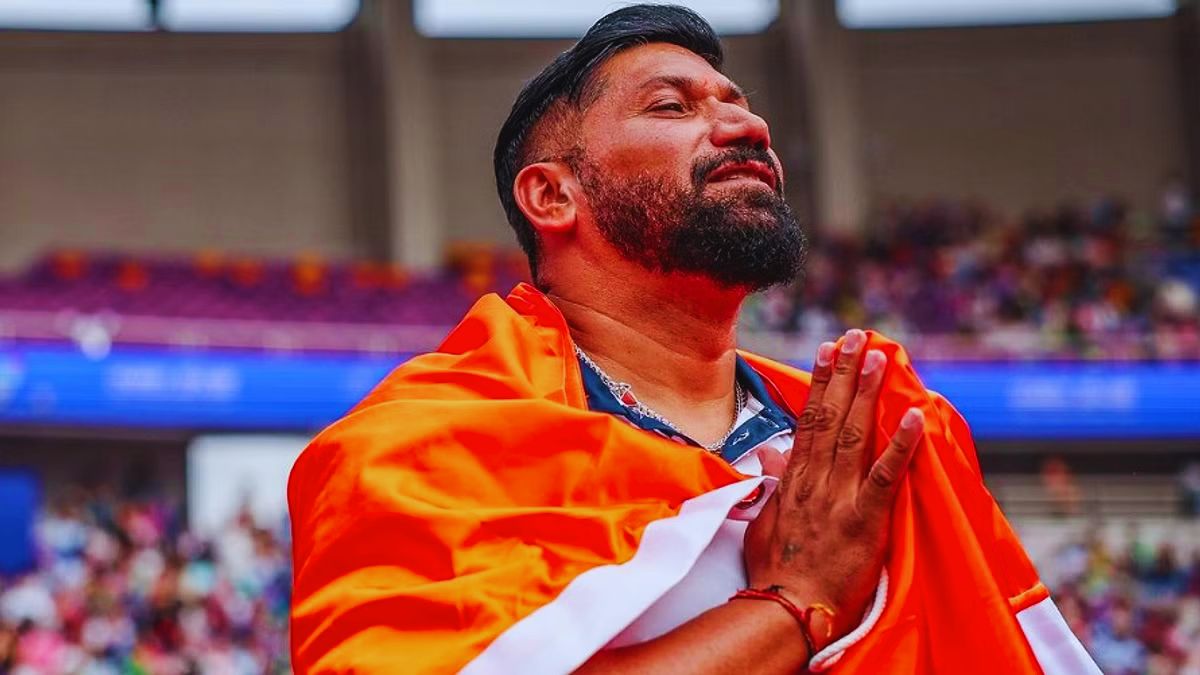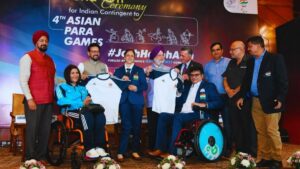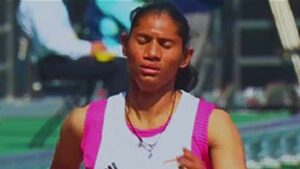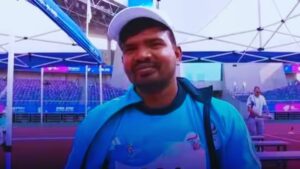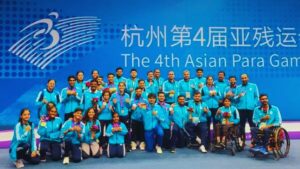India faces the potential loss of two gold medals at the recent Hangzhou Asian Para Games, following the failed dope test of Neeraj Yadav, a prominent para athlete. The National Anti-Doping Agency (NADA) conducted an out-of-competition test in Bengaluru just six days before Yadav’s departure for the continental showpiece, revealing the presence of anabolic steroids.
Also Read: PV Sindhu Partners with Badminton Legend Prakash Padukone for 2024 Paris Olympics Prep
Neeraj Yadav, who clinched gold in both the F55 javelin and discus throw events during the October 22-28 event, now risks tarnishing India’s impressive medal tally. If found guilty by the NADA panel, India could slip from fifth to sixth place in the overall standings, with Indonesia poised to ascend to the fifth position.
The Paralympic Committee of India (PCI) has contested the findings, raising concerns about the validity of the sample. The PCI’s athletics head coach, S Satyanarayana, stated, “We have written to the NADA that the sample in question might not have been his. Or otherwise, the sample could have been contaminated.”
Yadav, a 39-year-old para athlete diagnosed with Post-Polio Residual Paralysis at the age of 7, has been a stalwart in the para-sports community for over a decade. His journey from wheelchair tennis to becoming a gold medalist at the Asian Para Games in 2018 and securing victories in javelin and discus throw at the Marrakesh Grand Prix last year has been inspirational.
The stakes are high for India, as losing the two gold medals could impact its overall standing in the Asian Para Games. Satyanarayana acknowledged, “Yes, we will lose the two gold medals if the NADA panel does not accept our contention.”
The PCI is banking on the results from the two dope samples given by Yadav during the Hangzhou Games. If he is cleared in these tests, it could support the claim that the initial sample collected in Bengaluru may have been misplaced or contaminated.
While NADA has not provisionally suspended Yadav, questions arise about the handling of the situation, considering World Anti-Doping Agency (WADA) rules. WADA rules provide room for Result Management Authorities (RMA) to decide not to impose provisional suspension if they find the athlete’s explanation regarding the use of a contaminated product credible and believe no unfairness to other athletes will result.
Neeraj Yadav’s case raises concerns about the integrity of the sample collection process, as he alleges that samples of seven athletes were collected together in a single room at the Sports Authority of India (SAI) Centre in Bengaluru, increasing the risk of misattribution.
The para-athlete has maintained his innocence, stating that he has not taken any food supplements, and he has written this on the declaration form. The upcoming hearing on November 21 will determine Yadav’s fate, and if found guilty, it will not only impact his career but also cast a shadow over India’s otherwise stellar performance at the Asian Para Games.

